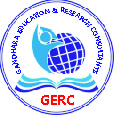Role of Inclusive Talent Development in Organizational Growth and Individual Talent Growth of Employees of Higher Education Institutes of Peshawar
Abstract
University training is crucial to upskilling staff members and aligning them with the goals and missions of higher education. The need to upskill all employees, regardless of their performance or position, has grown significantly in order to increase their value to the organization given the current financial restrictions facing universities, thus providing a base for conducting research on inclusive talent development. Studies on training delivery that is inclusive in poor nations are, nevertheless, scarce. Previous research on Inclusive Talent Development has mostly been carried out in developed economies whereas the developing economies have been neglected; this paper will address this gap in the higher education perspective. The purpose of this paper is to explore whether training is being inclusively imparted in higher institutions (HEIs) of Peshawar. The study was qualitative in nature and in-depth interviews were conducted as the main data collection tool, followed by focus group discussions to ensure triangulation. The sample consisted of seven public sector Higher Education Institutes and 3 private sector HEIs. Interviews from individuals and focus group were transcribed and analyzed through thematic analysis, bringing forth four key themes as a resultant of Inclusive Talent Development, namely Career Progression, Managerial Commitment, Succession Planning and Retention Strategy. This study has a limitation as it has been carried out for Higher Education Institutes of Peshawar only.
Copyright Notice Submission of an article implies that the work described has not been published previously (except in the form of an abstract or as part of a published lecture or academic thesis), that it is not under consideration for publication elsewhere, that its publication is approved by all authors and tacitly or explicitly by the responsible authorities where the work was carried out, and that, if accepted, will not be published elsewhere in the same form, in English or in any other language, without the written consent of the Publisher. The Editors reserve the right to edit or otherwise alter all contributions, but authors will receive proofs for approval before publication. Copyrights for articles published in IJSSA journal are retained by the authors, with first publication rights granted to the journal. The journal/publisher is not responsible for subsequent uses of the work. It is the author’s responsibility to bring an infringement action if so desired by the author.



